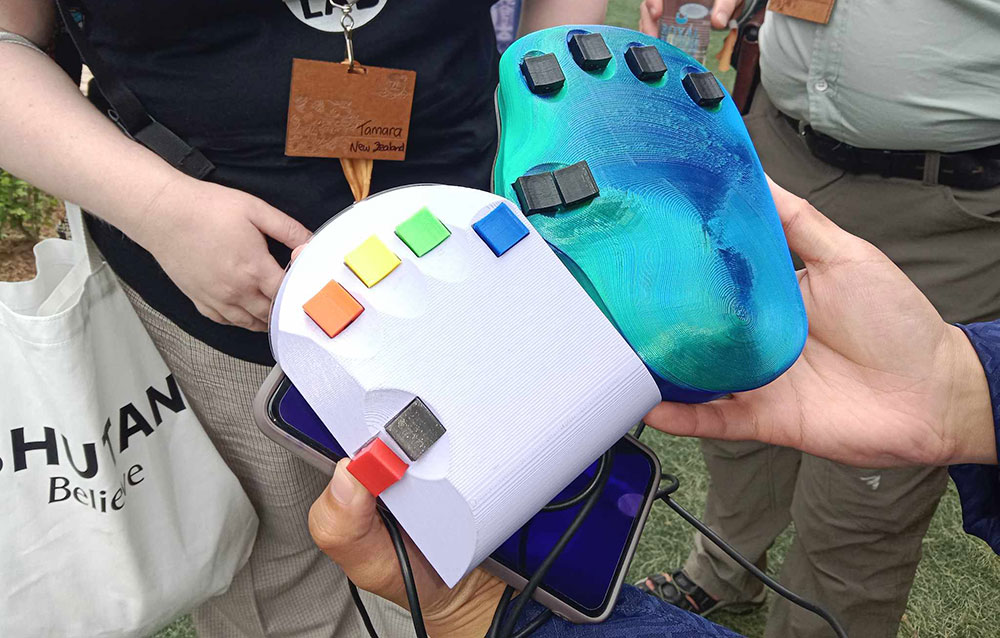Sherab Lhamo
The Fab23 Bhutan conference kicked off at the bustling tech park in Thimphu yesterday.
This esteemed gathering provides a unique platform for participants to immerse themselves in solution-oriented workshops, thought-provoking panel discussions, and inspiring keynote speeches.
The overarching goal is to ignite a spark of inspiration and empowerment, encouraging individuals to drive transformative changes in their communities and collectively strive for sustainable solutions to shape a shared future.
Drawing luminaries from diverse corners of the globe, the event features an impressive lineup of speakers spanning various domains, from NASA engineers to World Bank Climate Financing leaders.
Notably, the participants hail from an array of disciplines, each contributing a distinct perspective. Fields such as digital social innovation, Industry 4.0, regenerative economy, education, and sustainable tourism converge under one roof, fostering a rich tapestry of insights and ideas.
One prominent speaker who captivated the audience was Vik Olliver, representing Fab Lab in New Zealand. Olliver unveiled a groundbreaking innovation—a specially designed keyboard, aptly named Quirkey, tailored to cater to the needs of individuals with disabilities.
The concept behind this invention revolves around making affordable and accessible keyboards, harnessing the potential of Fab Labs for production.
Remarkably, the Quirkey keyboard boasts a minimalist design, comprising just six keys. However, its functionality exceeds expectations, effectively emulating a full-fledged 101-key keyboard. The true brilliance of Quirkey lies in its user-friendly approach, eliminating the need for extensive arm movement to press keys.
For individuals with visual impairments, limited arm mobility, or fragile bones that hinder the use of traditional keyboards, Quirkey emerges as a beacon of inclusivity.
The keyboard effortlessly plugs into PCs or tablets without requiring any special drivers, instantly recognized as a standard keyboard by the system. Olliver shared a heartwarming anecdote about a woman with an essential tremor that causes her hands to shake. Thanks to the Quirkey device, she could type with greater ease and reduced errors, moving at her own comfortable pace.
Beyond its utility for individuals with disabilities, Olliver emphasised that Quirkey significantly enhances text input, transforming users into adept touch typists.
Astonishingly, despite its effectiveness dating back to the 1980s, the device remains underutilised in many settings. Olliver is hopeful that its showcase at Fab23 Bhutan will inspire people to embrace this technology and produce the devices to benefit those in need.
For those eager to explore this groundbreaking technology, the open-source spirit shines brightly. By following the link provided at https://github.com/VikOlliver/Quirkey, individuals can access the package and codebase to create their very own Quirkey keyboard, further amplifying the potential for accessibility and inclusivity.
The conference will continue until the 28th of July.


